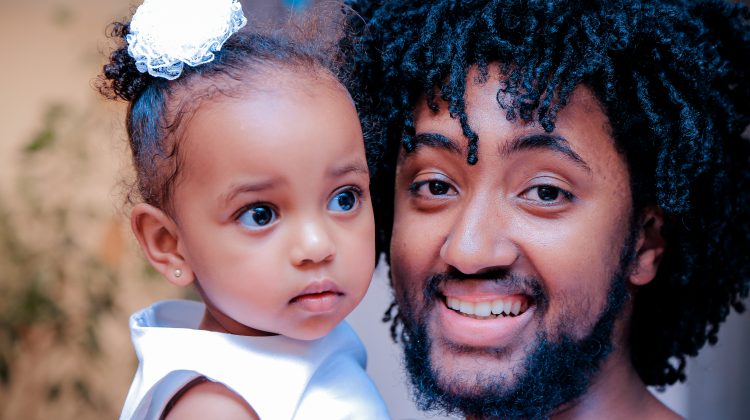The Divine Liturgy has ended—quite quickly after Communion—and together we sing more songs of thanksgiving and praise, including, “We have seen the light, the true light / We have received the heavenly Spirit…” In a closing prayer, the priest asks for Christ’s mercy and salvation and also honors His most pure Mother and the saints who came before us.

We celebrated with our unseen traveling companions in the joyful, eternal praise of heaven, because God has “raised us up together and made us sit together in the heavenly places in Christ Jesus” (Eph. 2:6). We began on earth but ended in the Kingdom of God.
Now what?
A Brief History of Coffee and Donuts…or Whatever the Ancient Romans Ate
Recently a monk told me that monastics consider the Divine Liturgy to be incomplete without a shared meal afterwards. To me, this is one more example of the corporate aspect of our Faith, that it is not “Jesus and me” but the “Holy Trinity and us.”

“Coffee hour” is a widespread practice throughout Christendom. I’ve munched on bagels in Anglican parishes and nondenominational churches. In some places of worship, I’ve also seen coffee, donuts, and other snacks available before the service begins. (In one church, people were sipping coffee in their seats not long before the little tray of Communion cups was passed along the rows. That ultra-casual approach to Communion was a tipping point for me. You can read more about my disillusionment and journey to Orthodoxy here.)
Now that I’ve been Orthodox for several years, the before-service snack seems odd—scandalous, even—and definitely in the wrong order. In the Orthodox Church, it is customary to refrain from eating or drinking before receiving the Eucharist so that we break our fast together with the precious Body and Blood of our Lord. I guess the donuts-before-worship practice is an outworking of a particular Protestant theology: when Communion is merely symbolic, there is no reason to fast beforehand.
But from the earliest days of the Church, Christians have eaten together after the Eucharist as a regular part of their worship experience. Saint Paul rebuked the Corinthian church for eating while others are hungry and for getting drunk (1 Cor. 11:17-22, 33-34). His words assume the practice of a shared meal. A few decades later, in the year 107, St. Ignatius wrote in his letter to the Smyrnaeans, “It is not lawful without the bishop either to baptize or to celebrate a love-feast; but whatsoever he shall approve of, that is also pleasing to God, so that everything that is done may be secure and valid.”
Pliny the Younger (d. 113 AD) reported to the Emperor Trajan that Christians offer “a form of prayer to Christ, as to a divinity… after which it was their custom to separate, and then reassemble, to eat in common a harmless meal” (Letter to Trajan, Book 10.96). Later in the second century, Hippolytus of Rome writes about a shared meal in his Apostolic Tradition, and other mentions of a “love feast” or “agape meal” are sprinkled throughout early Church history.
Life as the Liturgy after the Liturgy
To this day Orthodox Christians continue to eat together after the service, but the ongoing liturgy involves more than a communal snack. Some have called the post-liturgy period, from coffee hour through the rest of the week, “the liturgy after the liturgy.” It encompasses our whole lives, both inside and outside the walls of the church building.

Father Theodore Dorrance describes the liturgy after the liturgy as “living out that gratitude and our ‘royal priesthood’ that God has bestowed upon us. It is the ‘being sent out’ after the resurrection that the apostles experienced. It is the seamless transition from thanksgiving to preparation that moves us toward the next Divine Liturgy.”
The Divine Liturgy does not exist as its own end, either as a dead ritual or as a box to check off on our endless to-do lists. Filled with Christ’s presence and renewed in spirit, we are called to go out into the world and share His light with others, “for we are His workmanship, created in Christ Jesus for good works, which God prepared beforehand that we should walk in them” (Eph. 2:10).
Life as Sacrament
In the Orthodox Faith, everything in the life of the Church is sacramental.
This mystical view of life differs from much of the West, which likes to quantify things and define what is and is not a sacrament. Are there seven sacraments? Nine? The Baptists recognize two (baptism and communion).
But this penchant for numbering “is not an ancient practice of the Church,” as Fr. Thomas Hopko of blessed memory explains in his “rainbow series” of booklets, The Orthodox Faith. Counting the sacraments implies “that all other aspects of the life of the Church are essentially different from these particular actions. The more ancient and traditional practice of the Orthodox Church is to consider everything which is in and of the Church as sacramental or mystical” (From Vol. 2: Worship, “The Sacraments”).
This “everything” includes our daily lives, because we are the Church. “The Church may be defined as the new life in Christ,” Fr. Thomas writes. “It is man’s life lived by the Holy Spirit in union with God…. And so in Christ and the Holy Spirit everything in the Church becomes a sacrament, an element of the mystery of the Kingdom of God as it is already being experienced in the life of this world.”
The mystery continues outside the nave, during coffee hour, in the parking lot, and in our homes, schools, and workplaces, among friends and family: “It is the life of the Kingdom of God given already to those who believe.”

The goal of the Divine Liturgy goes beyond the transfiguration of the bread and the wine. Just as the prayers during the service reach out from the church building to embrace the whole world, we too are transfigured—internally, in our external words and deeds, and in our relationships.
In Christ, we are sent out to transfigure the world, living our lives as a sacrament—a mystery, an ongoing offering to our Lord.